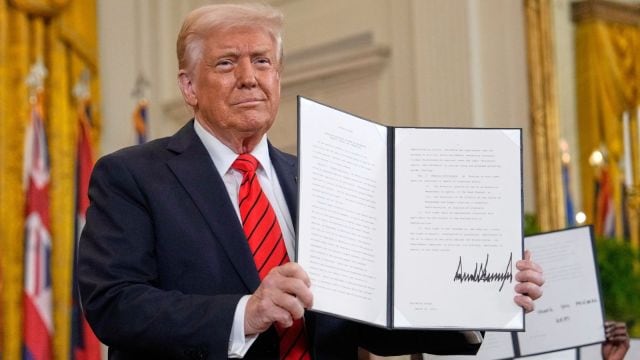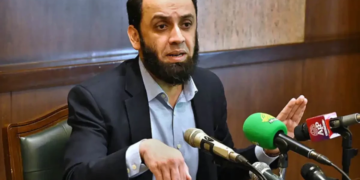KEY POINTS
- President Donald Trump signed an order to end collective bargaining with federal labor unions
- The order affects multiple federal departments, including State, Defense, Veterans Affairs, and Homeland Security’s border security division
- Trump cited the Civil Service Reform Act of 1978 as granting him the authority to make this decision
In a sweeping move, former U.S. President Donald Trump signed an order Thursday to end collective bargaining for federal labor unions in agencies tied to national security. The decision, made under the Civil Service Reform Act of 1978, was announced late in the evening with minimal public attention.
The order affects key government agencies, including the Departments of State, Defense, Veterans Affairs, Energy, Health and Human Services, Treasury, Justice, and Commerce. Additionally, it impacts the Homeland Security division responsible for border security. However, police officers and firefighters will retain their collective bargaining rights.
Trump justified the decision by citing the 1978 law, arguing that these agencies play a crucial role in safeguarding national security. His move is expected to face pushback from labor unions and federal workers who rely on collective bargaining for better wages and working conditions.
Critics argue that the order undermines workers’ rights and weakens protections for employees in high-stakes government roles. Supporters, however, claim it will enhance national security by reducing bureaucratic delays.
The order marks a significant shift in federal labor policy and is likely to spark legal challenges and political debate in the coming months.

















Comments